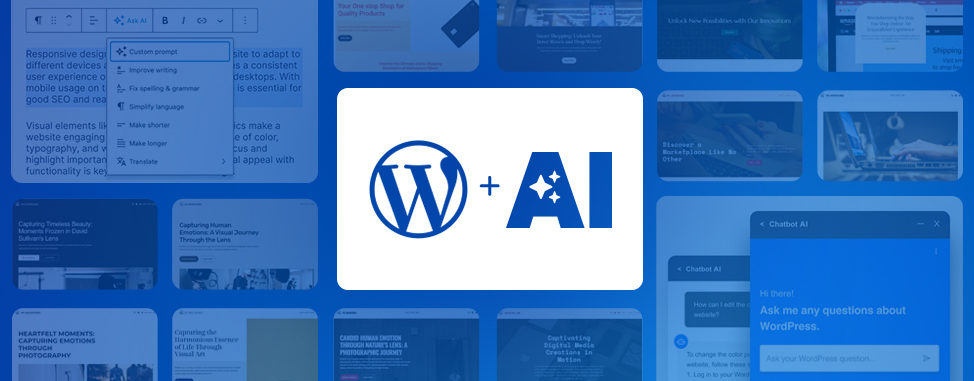
How to optimize business networking
The mere mention of the word "networking" can be intimidating, especially for introverts, but is it really as stressful as it sounds? Let's take a look at the best practices for stress-free business networking!
- What exactly is networking?
- Types of networking
- The benefits of networking
- Best practices for smart, profitable networking
- From networking to business growth
- Networking in a nutshell
What exactly is networking?
Networking is a face-to-face or online event that enables you to create and maintain professional or personal relationships with other people, with the aim of exchanging information and developing connections. Business networking is the best-known form of networking, but there’s also social or romantic networking.
Types of networking
Formal networking
Formal networking is characterized by organized, structured, face-to-face events. This is the classic type of networking organized by Chambers of Commerce, conferences and seminars. This is a targeted and effective approach to networking.
Informal networking
Informal networking takes place in less structured settings, such as social gatherings, sporting events, coworking spaces and so on. Links are forged over time in a much more natural way, without professional pressure.
Online networking
Online networking, meanwhile, is just a click away! Relationships are forged through a presence on digital platforms like LinkedIn or Facebook, for example. It's possible to connect with people from all over the world, which can be attractive to those who offer extended services without any geographical constraints. More introverted people particularly appreciate this type of networking.
The benefits of networking
Participating in networking events brings many benefits: you'll have access to information and resources that are exclusive to networking participants, all while increasing your visibility and building your professional reputation.
Best practices for smart, profitable networking
How to prepare
To optimize your networking experience, thorough preparation is essential. Here are a few things to think about:
- Start by defining a clear objective. For example, you might want to talk to one person in particular or make contact with three prominent people during the event. Setting an objective will help you stay focused and maximize your time.
- Prepare a short sales pitch and practice it! However, avoid rigid presentations that may come off as forced and unnatural. Settle your 2-3 main points, but otherwise adapt to whoever is in front of you. The important thing is to clearly explain what you do, why you do it and how you can help the person.
- Arrive at the event early so that you can meet more participants in a less crowded setting, thereby facilitating your interactions. If possible, find out in advance who will be in attendance. In this way, you can channel your energy towards essential interactions with key people.
Building an offline network
Participating in face-to-face networking events will certainly require a proactive approach. The first step is to identify places to network. Here are a few examples of networking events you could attend:
- Networking events organized by local Chambers of Commerce, business associations, etc.
- Training courses and conferences of all kinds often include a cocktail and networking period. It's the perfect time to meet new people!
- Professional associations, entrepreneurial networks, and networking groups such as BNI are also worth joining.
When networking, don't hesitate to ask questions and, above all, listen to the answers you get. People respond well when you show interest. Listening is an important skill. By being present and listening carefully, you'll better understand people’s needs and how to meet them.
When you talk about yourself, keep it short and concise: no one wants to listen to a self-involved, 30-minute rant. Above all, be yourself while avoiding main character syndrome.
After an event, follow up with the people you meet. Ideally, connect with them on networks like LinkedIn or use a CRM.
What about business cards? They're less prevalent these days. A good, up-to-date LinkedIn profile will do. Speaking of which, did you know that you can connect to someone on LinkedIn simply by using the QR Code associated with your profile?
Developing an online network
We're all familiar with face-to-face networking, but one mustn't underestimate the power of online networking, particularly through the use of social networks.
- Target the platforms or communities most relevant to you.
- Stay active in Facebook groups related to your field of activity.
- Maximize your use of LinkedIn: it's the ideal network for sharing content and making connections.
- Participate in discussions, comment on other people's publications, reply to comments you receive, etc.
There are also virtual networking events you can attend from the comfort of your own home. Do you have a creative streak and like to take charge? Why not organize your own virtual networking event?
Maintaining your network
Once you've created a network, it's important to know how to maintain it. Start by connecting online with the people you meet at events. LinkedIn is ideal for this, enabling you to maintain relationships and track your contacts’ progress. Beyond that, don't hesitate to check in with your contacts on a regular basis: this will show your interest in them, and you won’t likely be forgotten. Finally, stay proactive by putting members of your network in touch with each other. For example, if someone is looking for a professional in a specific field, don't hesitate to recommend the appropriate contact. Then, let the people referred know that you've recommended them, reinforcing your presence in their minds and strengthening the professional bond.
From networking to business growth
First of all, just because you meet someone while networking doesn't mean they'll sign a contract with you. Nevertheless, there are several strategies you can follow to make networking work for you and your business.
When you talk to someone at a networking event, ask yourself if they represent a sales or partnership/collaboration opportunity. They may not be either at present, but you never know when that might change.
Furthermore, investing in a relationship that isn't a client or partner can help you generate opportunities:
- Ask the person if they know a professional in a particular field; this reference could become a potential customer.
- Invite the person to become an ambassador for your company. You could even offer a referral program for people who bring you new customers.
- Go networking together. Not only will this give you a new person to go to events with, but it will also allow you to meet more people and set up mutual contacts.
Networking in a nutshell
Business networking, although intimidating for some, has proven to be a powerful tool for broadening professional horizons and developing rewarding opportunities. By understanding and applying different networking techniques, whether in formal, informal or online settings, you can cultivate valuable, lasting relationships.
With a proactive approach and targeted practices, your network will become a real driver for your business. So dive in and turn every meeting into a new opportunity for collaboration and success!
Not sure how to find networking events? Ask your local Chamber of Commerce, join a BNI or take advantage of LinkedIn Local.

Also on the WHC Blog

AI-powered WordPress is here, and it’s going to change everything!
For over 20 years, WordPress has been the go-to platform for creating and managing websites. Today, it powers over 43% of websites worldwide, nearly 10x as many as any other platform, making WordPress the world’s most...
Read full article
Join WHC @ WordCamp Canada
Exciting news! WHC is heading to WordCamp Canada, and we’re bringing our A-game. This WordPress-focus event will be held from July 11 to 13 in beautiful Ottawa. As proud sponsors, speakers, and panelists, we’re...
Read full article





